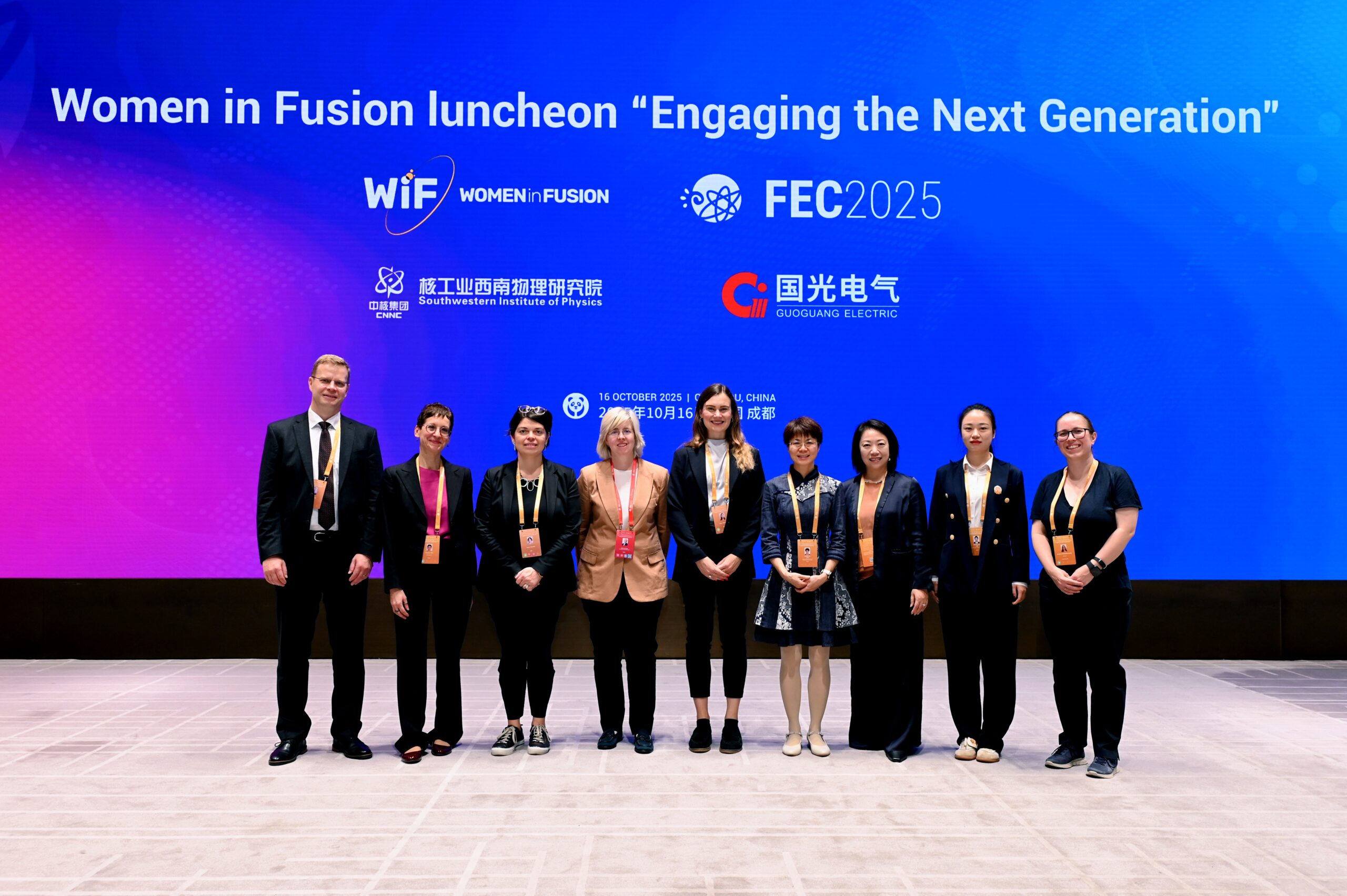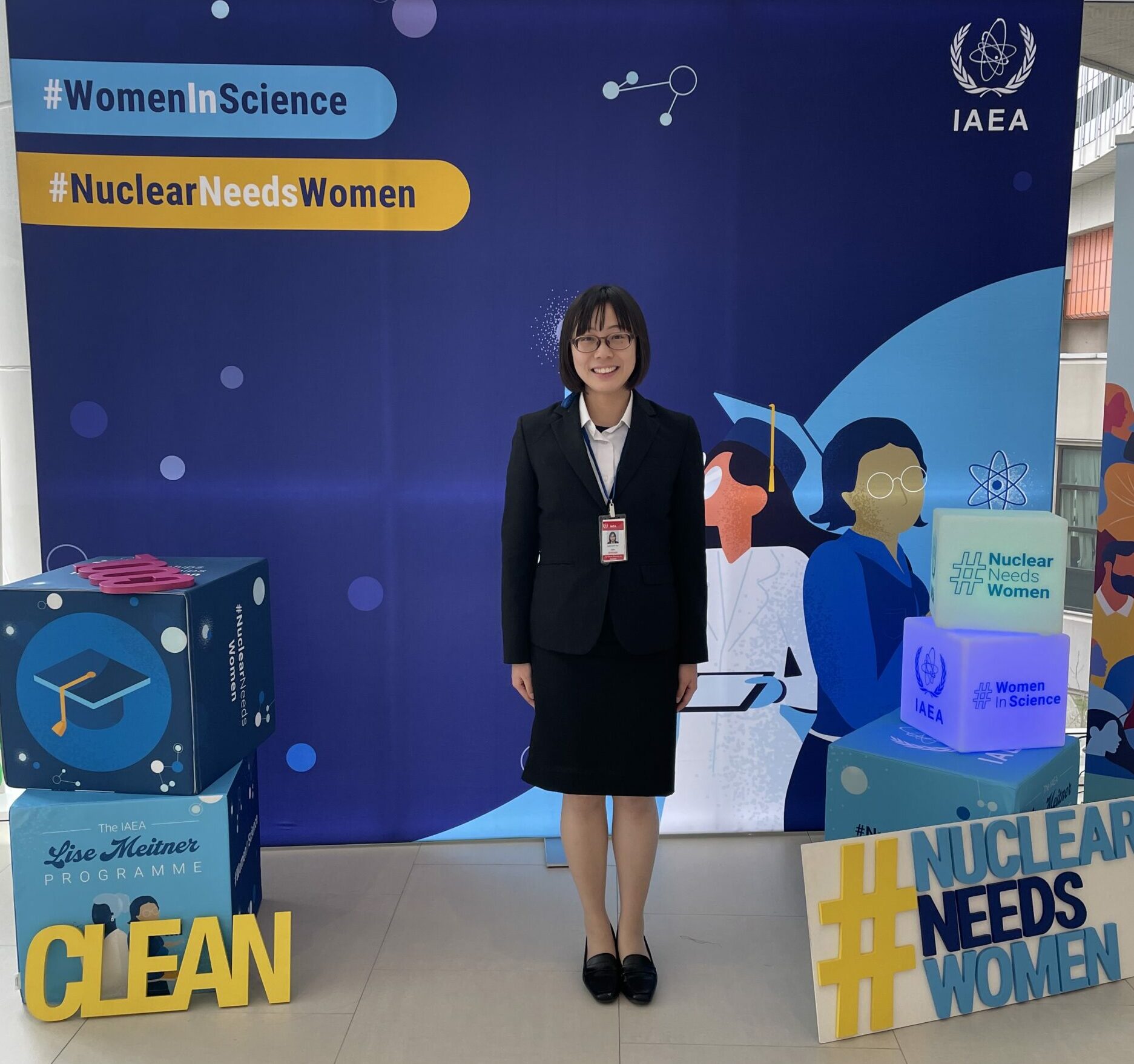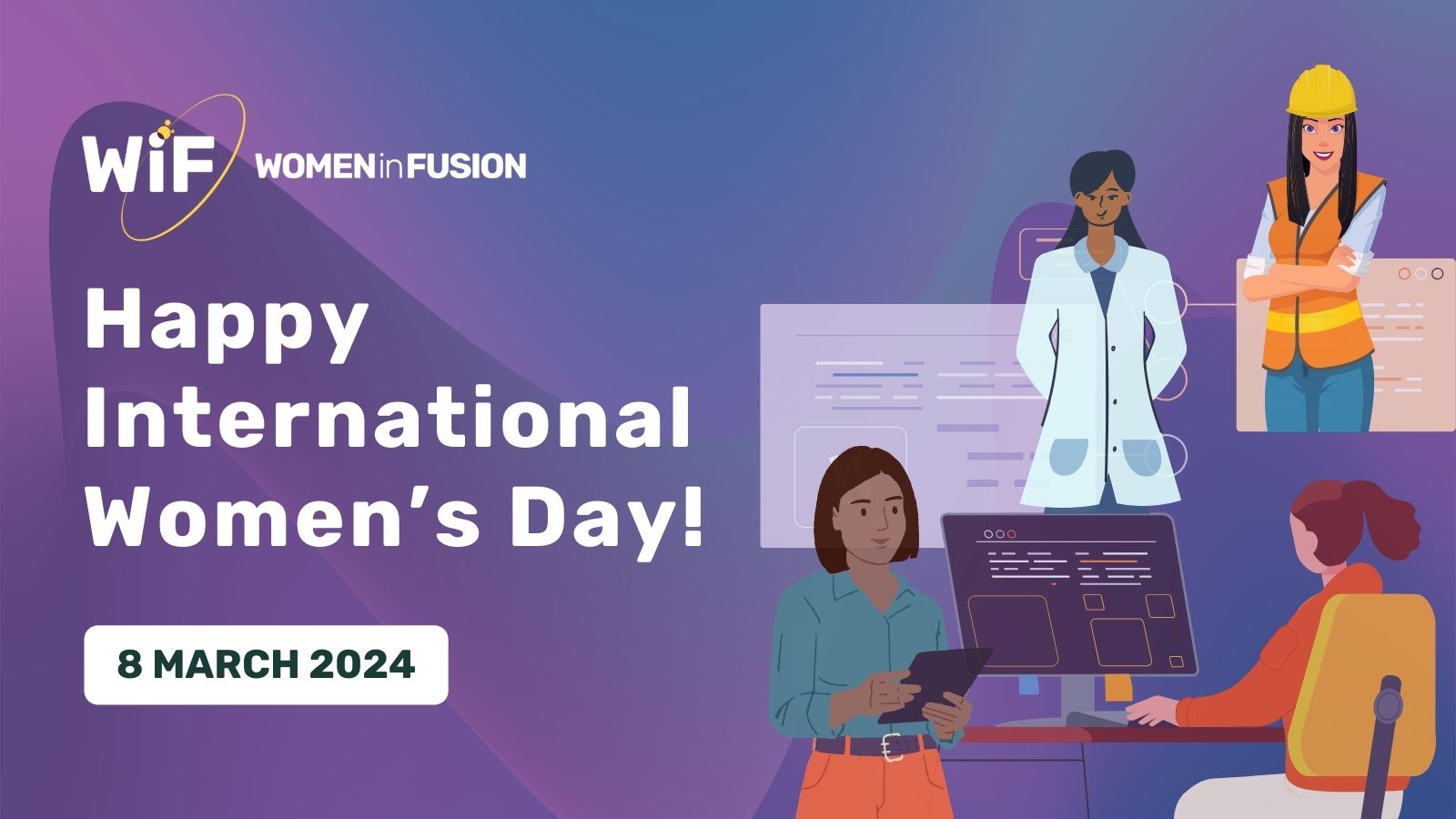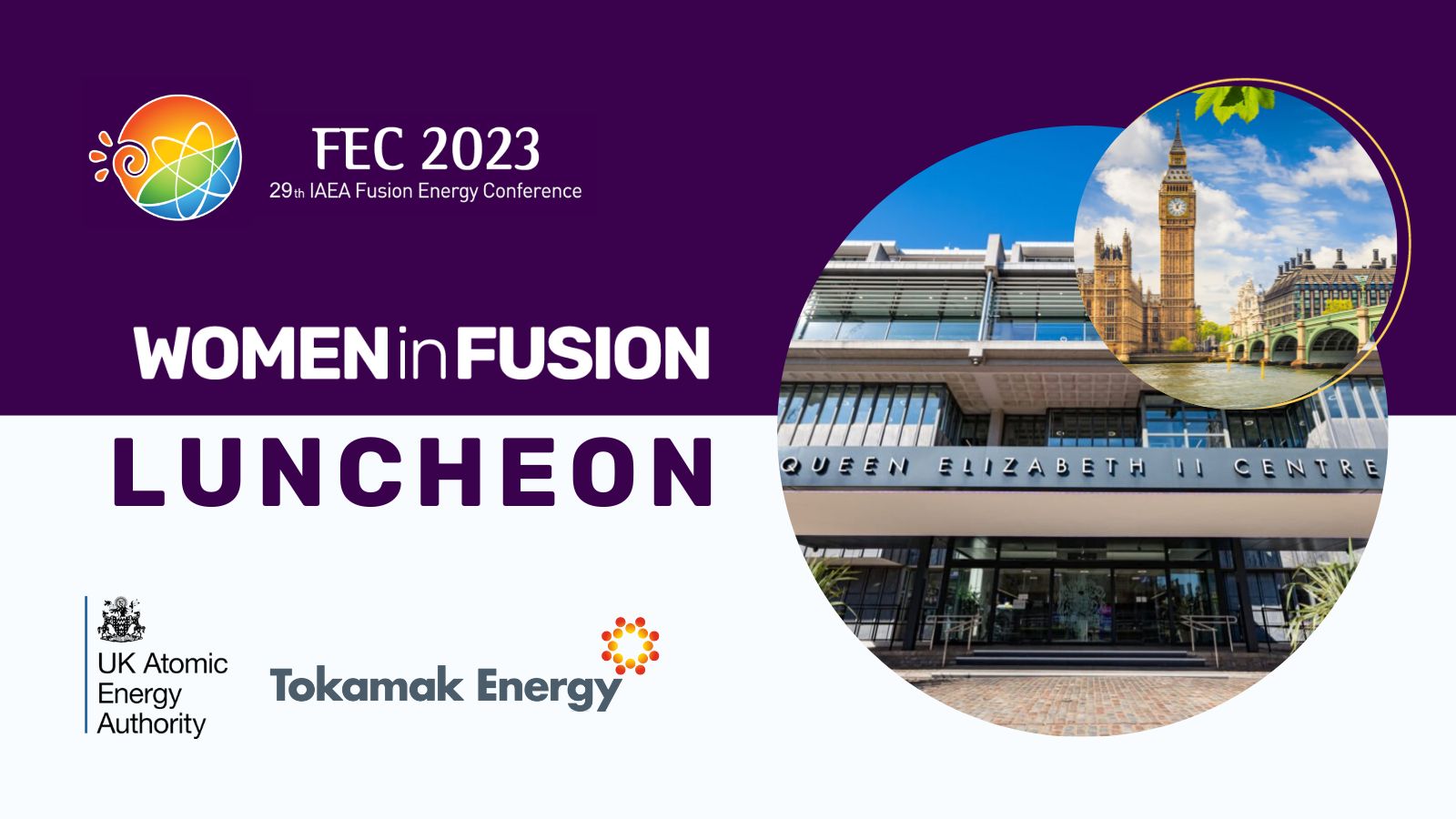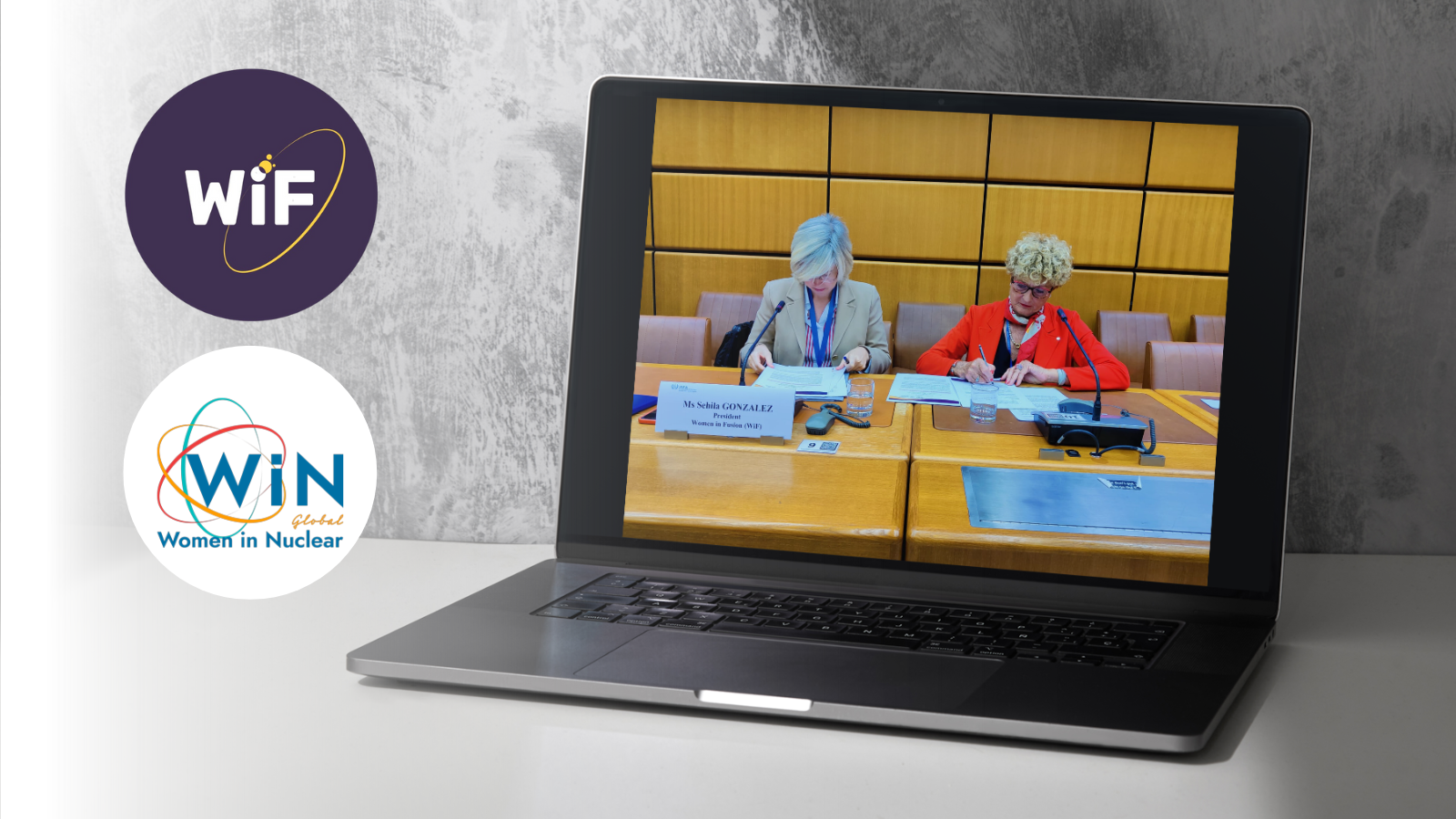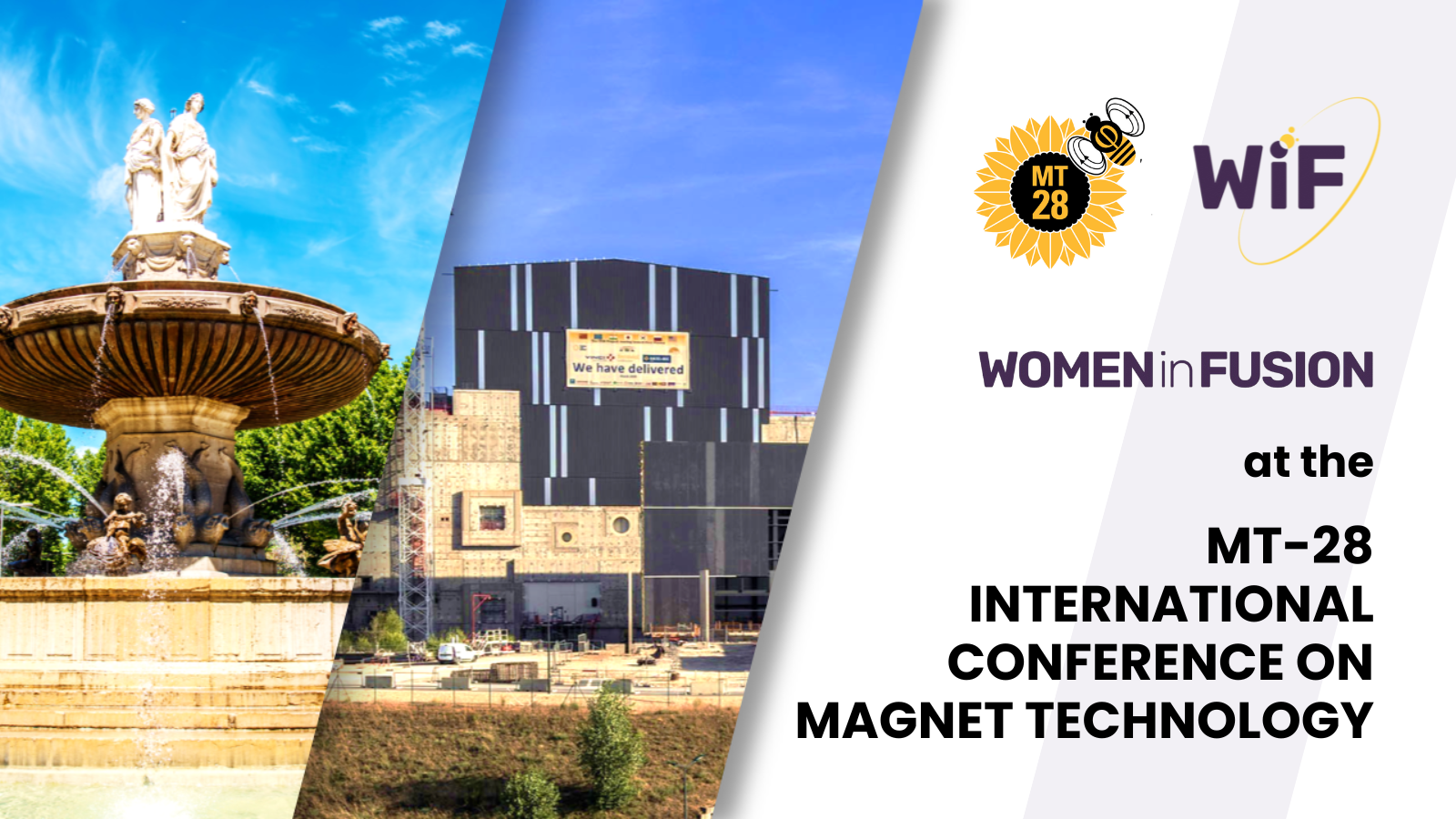


Women in Fusion at 30th IAEA Fusion Energy Conference, 13 – 18 Oct 2025
How can we inspire and prepare tomorrow’s workforce for the nuclear fusion industry? This important question was posed and discussed by a diverse panel of fusion experts during the luncheon panel “Engaging the Next Generation” during the IAEA Fusion Energy Conference 2025 in Chengdu, China. Organized by Women in Fusion, the global network dedicated to supporting, empowering, and advancing women working in the field of nuclear fusion science and engineering, the event spurred reflection and the exchange of ideas on how best to build the next generation of nuclear fusion leaders.
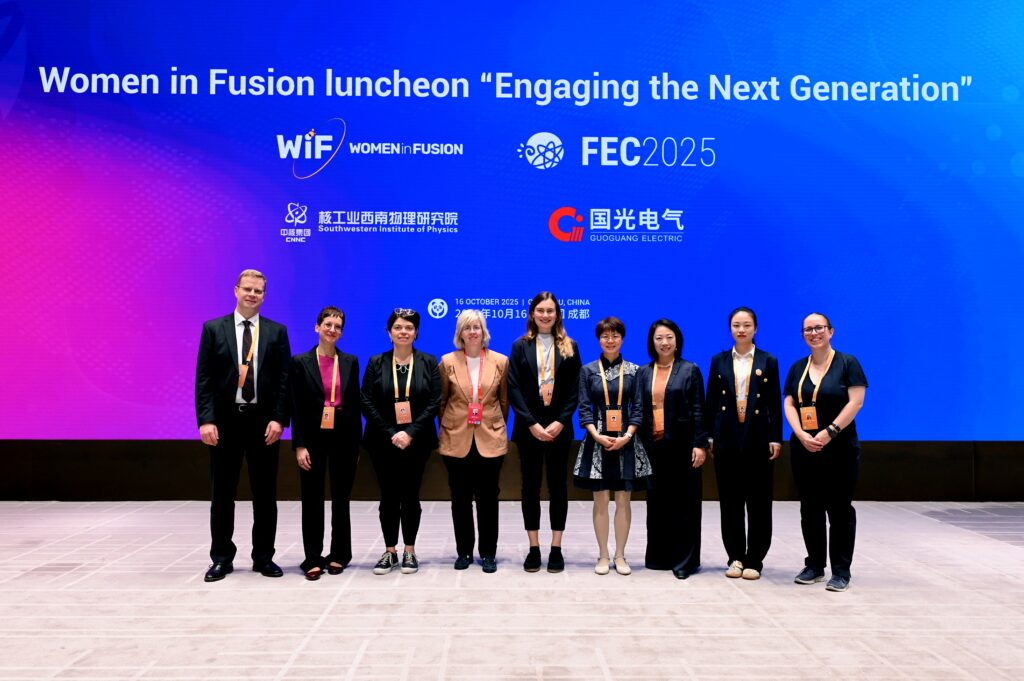
Breaking Barriers Early
Speakers emphasized the importance of introducing fusion and STEM concepts at the primary and high school levels, supported by teacher training and classroom resources in their native language. Early exposure – through school visits to laboratories, science festivals, and interactive programs – was highlighted as a way to spark curiosity and build long-term interest.
It was stressed, the research and development in fusion science and technologies is driving the next generation of fusion workforce – the fusion sector provides a goal with strong purpose and motivation and thus managing and engaging future workforce the fusion growth needs, must take place now.
Expanding the Ecosystem
The panel stressed that outreach should not stop with students. Parents, teachers, and communities play a crucial role in shaping career choices. Initiatives such as ITER’s teacher events and peer-to-peer teacher networks were cited as effective models. Engagement by private fusion companies were shown to be effective and were further encouraged to partner with schools and communities, for example by organizing summer camps, to strengthen the talent pipeline.
Representation and Role Models
A recurring theme was the need to challenge stereotypes – particularly the notion that “girls don’t do science or math.” Rather than presenting only extraordinary figures like Marie Curie, the panel called for showcasing relatable, local scientists to help young people envision themselves in the field.
Global and Inclusive Outreach
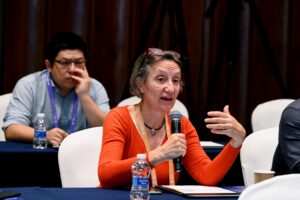
The discussion also highlighted regional disparities, noting that fusion remains underrepresented in non-traditional nuclear countries and regions, such as Africa. An interesting channel to leverage more could be social media, which has proven to be a powerful tool for geographical outreach in these regions. Diversity in education, training, and mentorship was underscored as essential – not just men sharing experiences with men, but inclusive exchanges across gender and cultural lines.
The Role of Media and Policy
Media engagement was identified as a critical factor in raising awareness. Journalists and communicators need better access to accurate, concise and easy-to-adopt information to help the public understand fusion’s potential. At the policy level, participants urged that gender equality and diversity measures should not be token add-ons in project funding, but integral to institutional strategies.
A recurring theme was the need to challenge stereotypes – particularly the notion that “girls don’t do science or math.” Rather than presenting only extraordinary figures like Marie Curie, the panel called for showcasing relatable, local scientists to help young people envision themselves in the field.
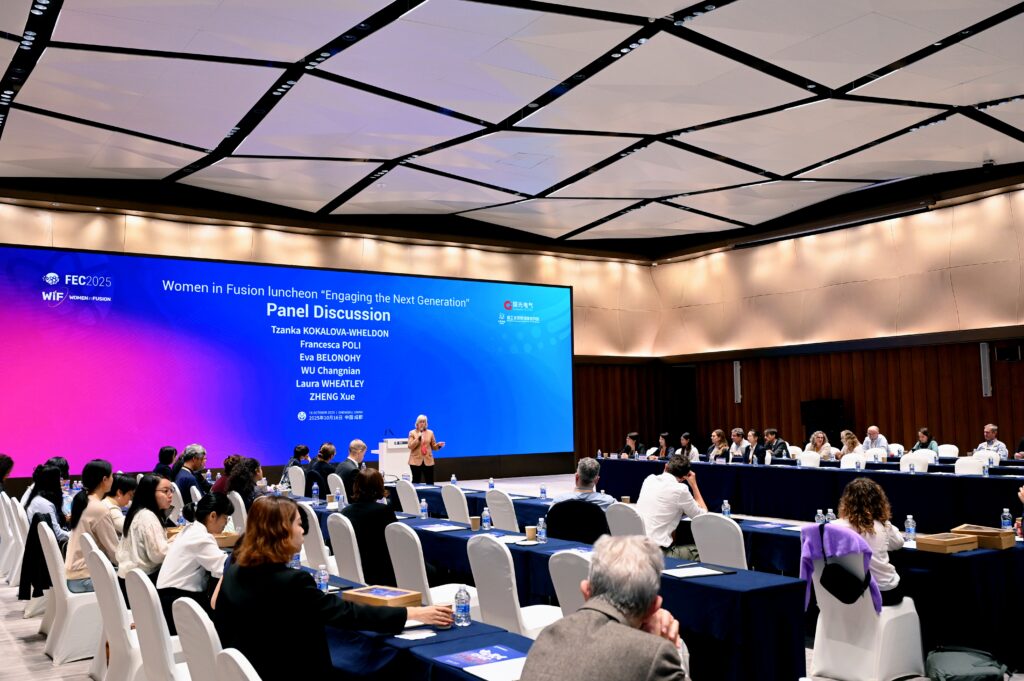
Pathways to a Stronger Workforce
The panel concluded with three pillars for building and retaining the fusion workforce:
- Outreach – raising awareness and attractiveness of fusion as a career path in schools, universities and engaging the public.
- Education & Training – make fusion courses and training material available and accessible globally.
- Work Experience and Job Opportunities – clear examples of careers in fusion and how to obtain them.
By breaking down barriers, broadening outreach, and fostering diversity, the fusion community aims to ensure that the next generation is not only inspired but also equipped to drive this transformative field forward.
Call for Actions
- Introduce Fusion Early: Integrate fusion and STEM concepts into primary and secondary education with teacher training, lab visits, and interactive programs.
- Engage the Ecosystem: Involve parents, teachers, and communities; encourage partnerships between schools and private fusion companies through camps, workshops, and outreach.
- Promote Role Models: Highlight diverse and relatable scientists – not just historic icons – to break stereotypes and inspire inclusivity.
- Expand Global Outreach: Address regional disparities by leveraging social media, and by fostering cross-cultural, gender-inclusive mentorship and training.
- Strengthen Media & Policy Support: Equip journalists with accurate information on fusion science, technology and recent advancements. Embed diversity and equality measures into institutional strategies related to fusion.
- Build Workforce Pathways: Provide accessible and multilingual education, hands-on training opportunities, and clear career pathways in fusion.
- Make fusion education accessible globally: Expand the availability and accessibility of undergraduate and post-graduate fusion education globally including in developing countries.
- Promote science popularization: further carry out science popularization activities related to nuclear fusion for the general public, students, and other communities.
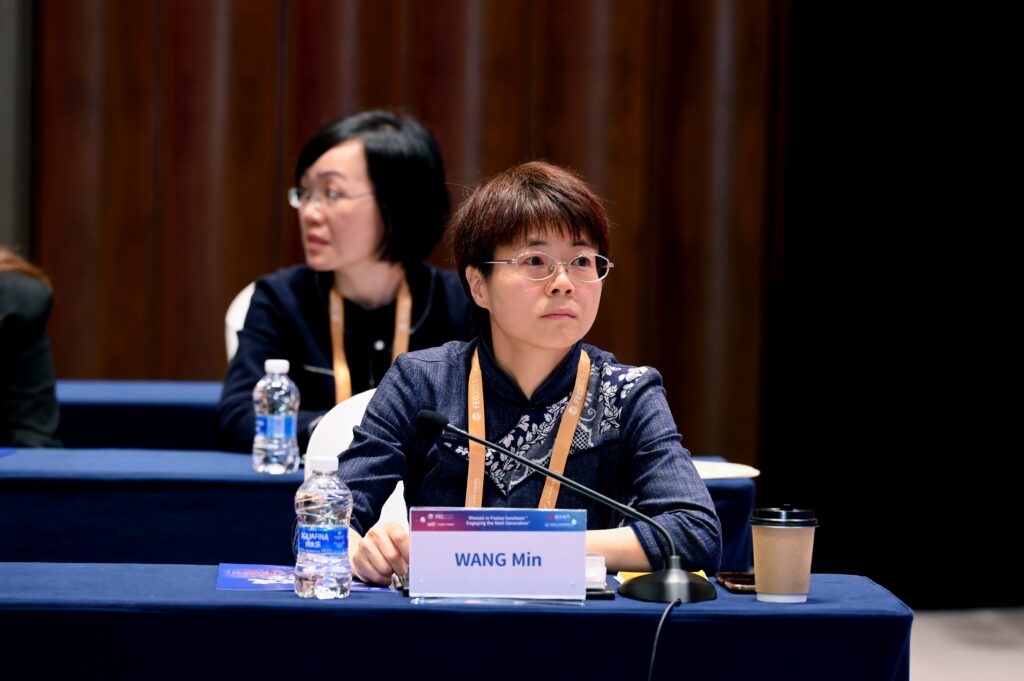
Women in Fusion luncheon “Engaging the Next Generation” at IAEA Fusion Energy Conference 2025
Presenter Mr. Kalle HEINOLA, Secretary of Women in Fusion
Moderator:
Ms. Sehila GONZALEZ DE VICENTE, Chair of Women in Fusion
Opening statements:
Ms. WANG Min, Deputy Director General of ITER China Domestic Agency, China
Ms. Tzanka KOKALOVA-WHELDON, Director of Physical and Chemical Sciences Division of IAEA
Panel:
Ms. Tzanka KOKALOVA-WHELDON, Director of Physical and Chemical Sciences Division of IAEA
Ms. Francesca POLI, ITER Organization, Coordinating Scientist
Ms. Eva BELONOHY, EUROfusion, Programme Management
Ms. WU Changnian, Vice Chairman, Chengdu Guoguang Electric, China
Ms. Laura WHEATLEY, IAEA, Associate Nuclear Fusion Engineer
Ms. ZHENG Xue, Electrical Engineer, Southwestern Institute of Physics – SWIP, China
Sponsors:
Southwestern Institute of Physics – SWIP, China
https://www.swip.ac.cn/swip/english66/about_swip/index.html
Chengdu Guoguang Electric, China
https://www.chinaguoguang.com/
Resources:
Links to resources and initiatives available globally
- FuseNet, The European Fusion Education Network – https://fusenet.eu/education/material
- EuroFusion, Fusion Education and Learning Hub – https://elearning.euro-fusion.org/
- Princeton Plasma Physics Laboratory (PPPL): 2024 Introduction to plasma and fusion course https://suli.pppl.gov/2024/course/
- ITER Talks, series of lectures on the science and technology of ITER and fusion – https://www.youtube.com/playlist?list=PLgfqoaB5_JWSCm2bO37NcTfALPrBA5CC0

